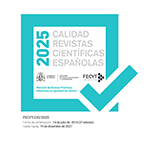Precolonial Igbo Voices in Akwaeke Emezi’s Freshwater (2018): A Palimpsestic Search for “Home”
Abstract
The present article examines how Freshwater (2018), the debut novel of the Nigerian writer Akwaeke Emezi, offers a layered portrayal of precolonial Igbo and western narratives. By recourse to the auto-fictional narrative mode, the fiction deploys a constant tug of war which suggests the culturally hybrid nature of discourses connected to spiritual belief, self-identity dynamics and gender. My analysis pivots around three main discussions. Firstly, I trace and exemplify the aesthetic and thematic imbrication between Igbo cosmology (and Animism) and Christianity. Secondly, I seek to evince the unconventional depiction of plural consciousnesses coexisting in an individual in an effort to contest long-established truisms of self formation. I also focus on the ensuing amalgam between western conceptions of mental illness, trauma and Igbo mystic interpretations of reality. Considering the peripheral Igbo stance the novel depicts, the fiction will be contextualised within the current literary meta- and trans-modernist axis. Thirdly, I refer to transgender issues mapped up and brought to the fore through the main character’s predicament; a search for existential answers commingling divergent paradigms. Thus, Freshwater offers a peculiar polyphony of numinous narratorial voices which strive to question extant (neo)postcolonial truths.
Downloads
Article download
License
In order to support the global exchange of knowledge, the journal Complutense Journal of English Studies is allowing unrestricted access to its content as from its publication in this electronic edition, and as such it is an open-access journal. The originals published in this journal are the property of the Complutense University of Madrid and any reproduction thereof in full or in part must cite the source. All content is distributed under a Creative Commons Attribution 4.0 use and distribution licence (CC BY 4.0). This circumstance must be expressly stated in these terms where necessary. You can view the summary and the complete legal text of the licence.









